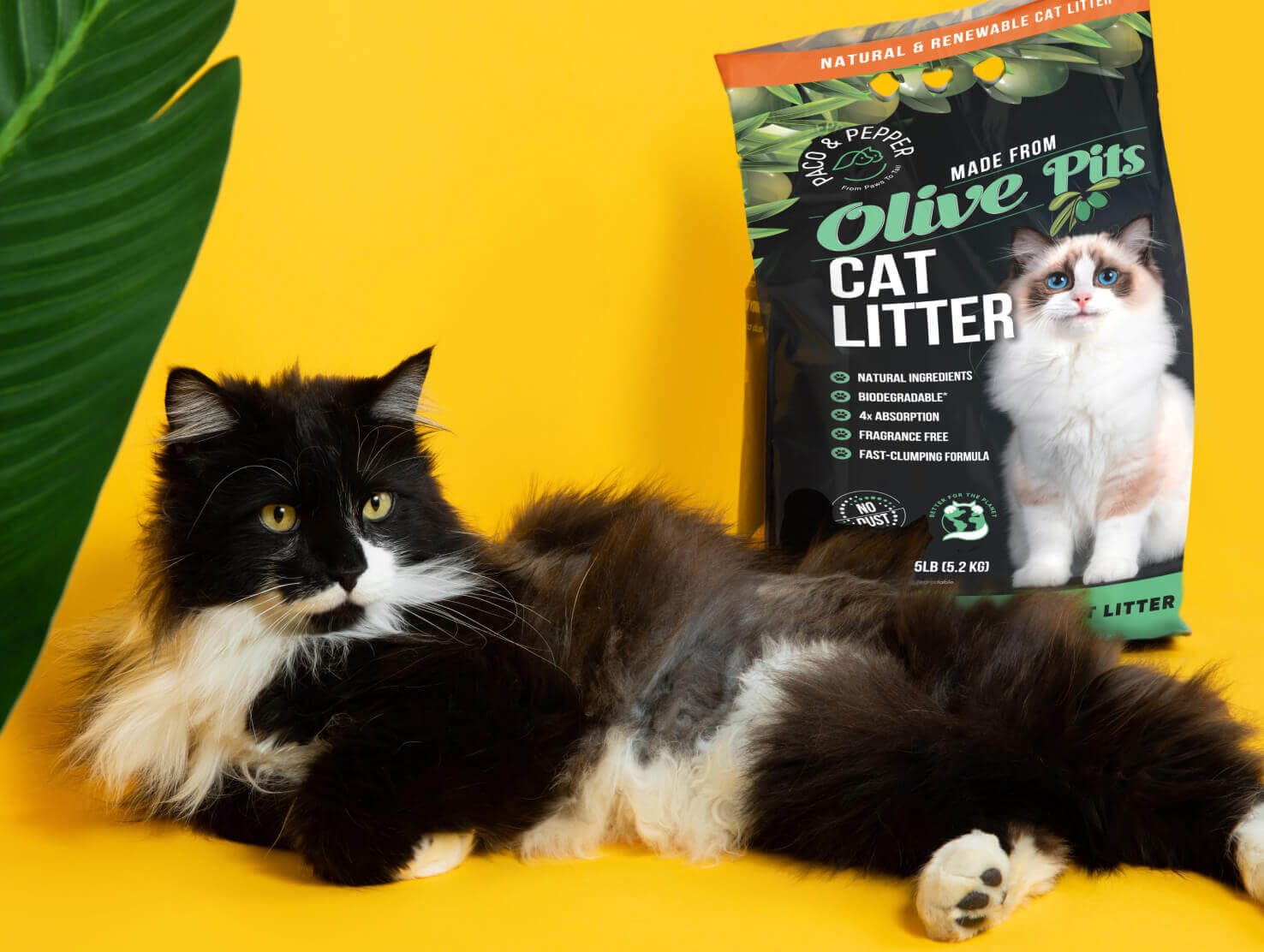Сan cats be allergic to cat litter?

As caring owners, we always strive to provide our fluffy friends with maximum comfort and care. However, when our pets begin to show unusual behavior or symptoms of discomfort, this should alert us, since we can talk about an allergic reaction. Cats, like people, can suffer from various forms of allergies, which are often caused by a cat litter. Let's dive deeper into this topic, considering the signs of allergies, possible sources of problems and methods for solving them.
Can a cat be allergic to litter?
Signs of allergies in cats
Allergies in cats can manifest themselves in various ways, which makes diagnosis not always a simple task. However, observation of changes in the behavior and health of your cat can help to identify signs of allergies. Typical symptoms include:
- Stinging and itching
One of the most common symptoms of allergies is constant scratching and licking of various parts of the body. If your cat is constantly licking or touching its ears and face with its paw, this can be a sign of an allergy to the composition of the cat litter.
-
Skin rashes and redness
An allergic reaction can appear on the skin in the form of rashes, redness or even ulcers. This is especially noticeable in the abdomen, inner hips and armpits, that is, those areas of the skin that are in direct contact with the litter.
-
Problems with breathing
An allergy can affect the respiratory tract of a cat, manifesting in sneezing and difficult and frequent breathing. If your cat begins to show similar symptoms, this can be a sign of allergies to particles rising from cat litter.
-
Problems with the gastrointestinal tract
Some cats can respond to allergens contained in a cat litter, especially if they like to taste it. Vomiting, diarrhea or other stomach disorders can be associated with allergies to certain components of the litter.
-
Changes in behavior
When the cat feels discomfort or pain due to allergies, it can change its behavior. This may include leaving the tray, attempts to avoid a certain litter or fear of using the tray.
Does cat litter cause allergies? What ingredients often act as allergens?
Now that we have examined in more detail the symptoms of allergies to the litter and answered the question: “can cats be allergic to litter”, let's move on to the matter of what specific elements in its composition can become sources of allergies in your cat. The definition of a specific allergen may require cooperation with the vet, testing and thorough observation of changes in the state of your cat.
-
Artificial fragrances and chemical additives
Some cat litters contain fragrances and chemical additives, which, despite their pleasant aroma, can become irritants for the respiratory tract of a cat. Parabens and artificial fragrances are frequent components that cause allergies.
-
Dust and small particles
Dust rising from some types of cat litters, especially clay litter, can become an irritant for the respiratory tract and skin of a cat. Silicon dioxide and titanium dioxide, often used to reduce smell and improve texture, can cause allergies.
-
Natural materials
Even natural litters, such as wood or corn, can become a source of allergies. Litters based on paper and other plant materials can also cause negative reactions, although much less often than traditional litters.
- Abrasive materials:
Some cat litters contain abrasive materials, such as clay, which can irritate the delicate skin of the cat paws and cause discomfort, which subsequently leads to rash and irritation.
-
The reaction to the change in texture
For some cats, a change in the litter texture, especially when moving from one type to another, can cause an allergic reaction. For example, if a cat is used to a litter with a rough texture and suddenly encounters a milder option, this can cause stress and even an allergic reaction.
If you have a suspicion that your cat is allergic to a cat litter, it is important to contact a veterinarian. The vet will conduct a medical evaluation, ask questions about the symptoms and possible changes in the environment of the cat.
What to do if your cat is allergic?
If your cat was diagnosed with allergies to a cat litter, it is urgent to take measures to ensure maximum comfort and care for the pet. Let's take a closer look at some steps that will definitely help you cope with this problem faster.
- Change of litter
The choice of hypoallergenic or safe cat litter can make a significant difference. Hypoallergenic options, as a rule, are made of materials with low potential allergies, such as natural fibers, paper, or raw plant materials. It is important to conduct careful research and choose a litter that not only meets the needs of your cat, but also minimizes the risk of allergic reactions.
-
Cleanliness and ventilation
Regular cleaning of the tray and maintenance of purity around it can significantly reduce the level of allergens in the environment. Remember that some cat litters produce dust when used, so regular cleaning of the tray will also help reduce the number of particles that can cause allergies.
-
A visit to the vet
Regular visits to the veterinarian are necessary to monitor the health status of your cat and identify any signs of allergic reactions. Your vet may offer additional allergy management tips, recommendations for maintaining the health of the skin and fur, as well as offer the best litter options.
Conclusion
An allergy to a cat litter is a rather rare occurrence, but quite possible. In the presence of symptoms of allergies, it is important to immediately contact a veterinarian for the diagnosis and development of a treatment plan. The choice of the correct litter and attention to the health status of a cat will help to ensure its comfort and well-being.

